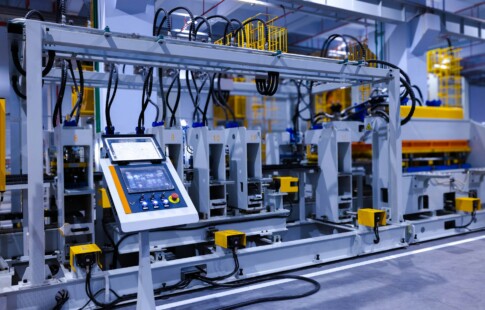
6 Biomass Pros and Cons
We are reader-supported. When you buy through links on our site, we may earn affiliate commission.
Climate change and pollution already result in millions of deaths each year. Experts warn that humans need to act quickly to reform the way they live and do business or risk making the planet uninhabitable for future generations. Looking into biomass, pros and cons exist to convince and inform of this renewable energy.
Alternative energy sources are a must. Fossil fuel use results in tons of carbon emissions, warming temperatures and worsening weather extremes.
Biomass is one such alternative source. Here are six pros and cons of using this technology for energy.
What is Biomass?
Biomass refers to renewable organic material produced from plants and animals. Far from new technology, it was the number one fuel source until the early 1800s.
You probably think of biomass for producing modern biofuels such as ethanol and biodiesel. That’s an accurate assessment. Another example of biomass use is throwing another log on the fire on a cold winter’s night.
Common biomass sources of energy include the following:
- Wood and wood processing wastes: This group includes firelogs and waste products from paper mills.
- Special crops and their waste: Crops like corn, soybeans and sugarcane and their residues.
- Biogenic materials in municipal waste: Think of this category like a compost bin on steroids. It includes items like lawn cuttings and discarded newspapers.
- Animal manure and human sewage: Is it a little gross to think about? Perhaps, but turning poop into fuel could solve environmental problems.
Biomass has different environmental impacts contingent upon the type. For example, wood-burning stoves emit considerable emissions. However, the Environmental Protection Agency (EPA) recently limited emission limits of 4.5 grams of smoke per hour for new devices.
Conversely, fuels like ethanol and biodiesel burn cleanly. Using them for vehicles could slash emissions by 86% compared to traditional fossil fuels.
1. It’s Renewable
One significant advantage of biomass energy is that it is infinitely renewable as long as planet earth keeps producing enough materials to keep plants, animals and people thriving. Society will always create garbage and sewage. Furthermore, farmers can plant crops year after year, rotating them to maintain soil quality in fields.
2. It Reduces Waste
There’s only so much land here on planet earth. Each square foot used for landfill space can’t be devoted to building homes or planting crops. Managing the enormous amount of trash society generates is a real problem that biomass energy could help solve.
While not all waste converts to biofuel, much of it could. These materials take a long time to break down when buried in landfills — converting them to energy would save considerable space.
3. It’s Reliable
One of the most frequently asked questions about solar power is what happens when the sun doesn’t shine enough? While storage grids are improving at saving and distributing power, shortages are a legitimate concern in certain weather conditions. The same principle applies to wind.
However, biomass is readily available. If supplies run short, society can plant more crops to produce the necessary energy.
4. It’s Expensive
Biomass sounds like the answer to many climate change problems. Why isn’t it used more widely? One con of this technology is the cost of producing it. It takes considerable cash to transport the raw materials to a center where they can be converted to fuel.
That’s not the only problem. Ounce per ounce, biofuels made from biomass give off far less energy than traditional fossil fuels. It takes a much greater amount to do the same job.
5. It Uses Agricultural Land
Another issue with biomass is that growing crops for ethanol and biodiesel uses arable land that could otherwise produce food for human consumption. Hunger and inflation are significant problems in America. Shortages could drive up prices more and punish those already struggling to afford groceries.
6. Can Encourage Wastefulness
Some experts fear that the widespread use of biomass technology, particularly that which converts garbage into fuel, could encourage wastefulness. If people think that the materials they toss in the garbage will only end up in a gas tank, they’ll be more likely to carelessly discard items and replace them.
However, what happens to the trash is only part of the equation. Producing more goods to replace those used could deplete natural resources. For example, if enough people switch from sustainable rags back to paper towels for every cleaning task, deforestation could pose more of a threat to the planet’s trees — which are necessary to mitigate carbon emissions and global warming.
Biomass Pros and Cons
To keep the planet habitable, people have to make changes. Switching to alternative energy is one way to decrease society’s overall carbon footprint.
Looking at biomass pros and cons offers one such avenue for cleaner fuel. Please educate yourself on the pros and cons of this alternative energy source so that you can be a more effective eco-advocate.
Share on
Like what you read? Join other Environment.co readers!
Get the latest updates on our planet by subscribing to the Environment.co newsletter!
About the author
Jane Marsh
Starting from an early age, Jane Marsh loved all animals and became a budding environmentalist. Now, Jane works as the Editor-in-Chief of Environment.co where she covers topics related to climate policy, renewable energy, the food industry, and more.





